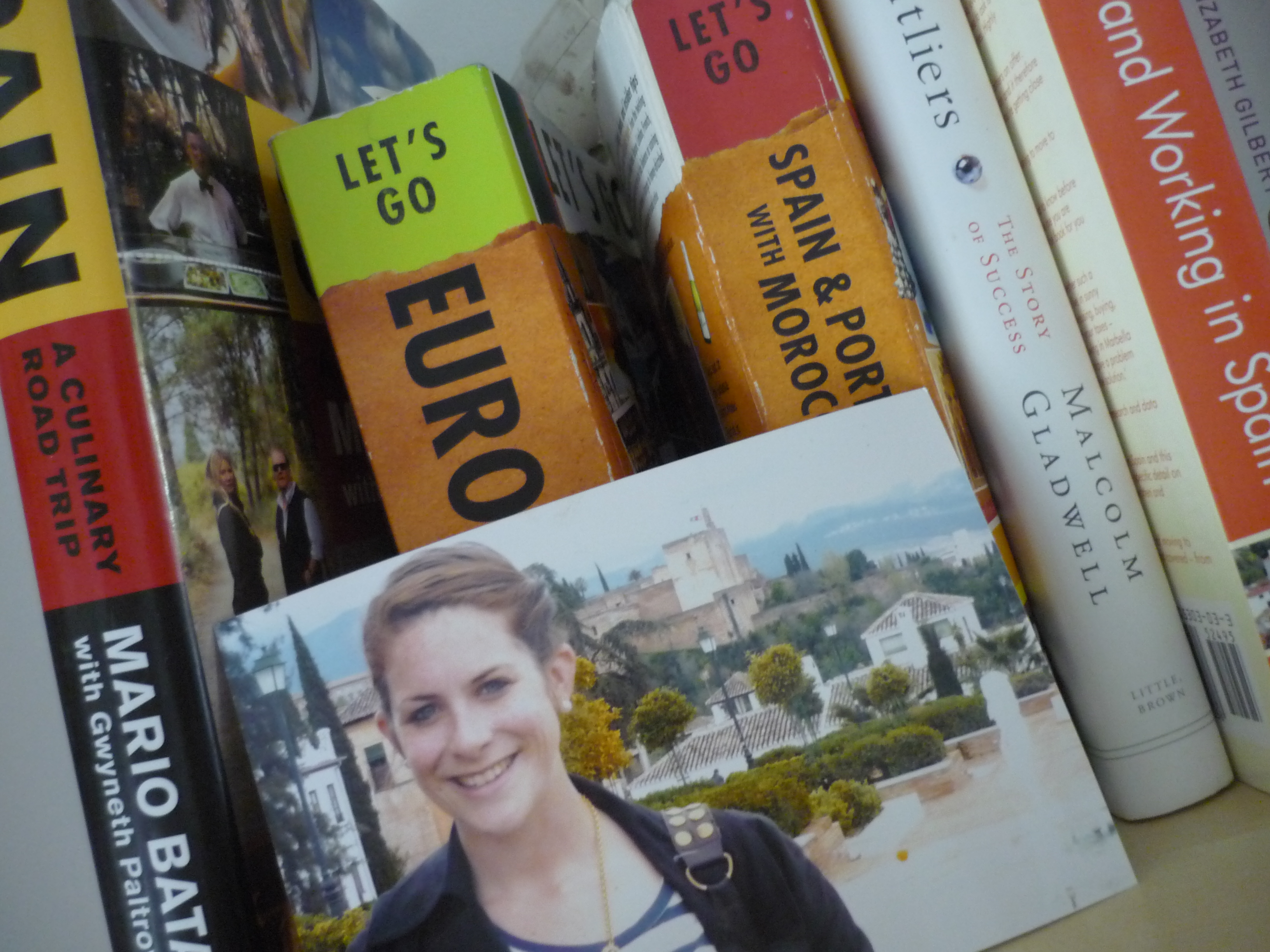I learned the hard way just how tedious and difficult it can be to research a guidebook. After study abroad in Spain and reading every.single.page. of Let’s Go Spain 2005, I felt I knew the Iberian Peninsula in and out. I wanted to travel and eat in restaurants for free, go on tours and ride in buses to far off places, all in the name of budget travel and a small wage.
So, when I was contacted by one GG of Rough Guides, I jumped at the opportunity to help contribute to The Rough Guide to Andalucia (out May 1, 2012 – look for my mention on page 933!). I set off on the task, determined to uncover new places and tout the old ones.
The work was long, often frustrating, and needed various re-writes.
I got in contact with GG in February of 2011, and we met the following month to hammer out the details. I didn’t actually complete the work and get paid until the beginning of 2012 – due to an overhaul of the book’s design, there was more work and research to be done. Additionally, with the new government in place in Spain, the economic crisis and the normal turnover of businesses (Qué! reported in February that 14,000 new business were founded in 2011 and over 5,000 went defunct), I often had to frantically tap out an email to GG to report that a place had closed or changed hours.
Guidebooks are often obsolete the second they go to press. While they provide an excellent way to get started on planning on a trip, they often can’t be relied on blindly. So, then, what happens after your trip to SE Asia? That enormous Lonely Planet or Frommer’s you shelled out money for, what will become of it?
Trade-ins and Book Drop Offs
One of the best moments I had on my first trip to Amsterdam was browsing in the American Bookstore off of Damm Square. I was clued into the Dutch reading habit by my friend Martin, whose small apartment was full of books in many languages. My travel partner needed to do some research for her thesis proposal, so I parked it on a beanbag and browsed titles, running my fingers over bindings and through coffee table books, not wanting to start and not be able to stop a novel.
Similarly, I spent money and luggage space on books bought in Hungary at an English book exchange with incredible organic coffee. If like minds do indeed think alike, the pairing of musty old books and strong java was my idea of haven for a chilly afternoon. In expat enclaves worldwide, book exchanges and drop offs have become a way to recycle old friends and sometimes make a bit of cash.
In Seville, you could also leave your book at the Centro Norteamericano on Calle Harinas, 16-18, in the library. As one of the largest English-language collections in the city, the place takes in all of leftover books from the American Women’s Club book fair and takes up the upper patio of the restored villa. You can find Gaye, the woman in charge, during the workweek from 8:15 until 10pm (8pm on Fridays), though note that the system is based on honor, and you MUST be a member of the AWC to check books out. Similarly, the Phoenix Pub in nearby Bormujos has become a book-collecting haven for English language goods.
Leave it behind at a hostel, train station or airport with a note
Knowing my family would soon be traveling to Ireland, I picked up a copy of Frank McCourt’s Angela’s Ashes at the American Women’s Club book fair. Starting up the book in Málaga at the airport, I boarded the plane with a two-hour delay, sat on the runway for another two, was in the air for three, and sat on the ground again waiting for a gate another hour. With nothing better to do on a cramped Ryan Air flight, I damn near finished the book. I also hated myself for not having such a traumatic childhood like McCourt did. The book thoroughly depressed me.

Three days later, we arrived to still Limerick on Christmas morning. The chill and the absence of people made McCourt’s Limerick a reality to me, so I left the book on a bench near the historic center with a note on the inside flap: Reader Beware. I signed my name, printed the date and walked away.
Could you imagine picking up a book or short story in an airport and diving in? Books are to be treasured, so parting with a beloved friend can, in turn, pick up someone else’s day. Likewise, hostels are always hungry for books and provide an eclectic collection for travelers. Your old guidebooks – or books – can find a home here and become an uncovered gem for a like-minded traveler.
Decoupage
As a kid, I loved doing all kinds of crafty work and my mom took us almost weekly to Michael’s for paint, hot glue guns and the like. I started decoupaging anything I could get my hands on – often using travel magazines and the Chicago Tribune Travel section to cover notebooks, shoeboxes and pencil holders.
Now that I’ve been in Europe for over four years, I save all of my museum entrances, bus tickets and even napkins from memorable meals to decoupage photo albums. I have my camera on me at all times – even if it is just my phone’s – so my pictures are often an integral part of my trip. Signing up for photo sharing websites like Snapfish or Shutterfly will usually get you anywhere from 20-100 free prints, and I’ve scored hundreds of others for simply subscribing to the sites. My whole Ireland trip for the shipping and handling costs? Genius.
note: Amazon UK will ship for free to Spain for orders over 25£, Book Depository offers free shipping to Spain.
Plain old leave it on your nightstand, bookshelf or coffee table
In reading Rolf Potts’ Vagabonding: An Uncommon Guide to the Art of Long-term Travel, I realized that I sometimes just need a bit of inspiration to get me through a few hours’ time prowling for cheap flights. My two books that I bought back in 2009 (updated in 2008, then) serve as a good jumping off point, but I find that they’re much more practical at home than lugged in my bag. I treasure the creased pages, underlined routes and worn binding that brings me back to the souqs of Morocco or Asturias’s green coast.
My 2009 guidebooks still just sit around my house, reminding me of the thrill of going to a new, unknown place. They’ve found their home next to cookbooks and old copies of secondhand books in English and Spanish. I’ve got little trinkets all around my house that serve the same purpose – a wooden sculpture from the Merry Cemetery of Sapanta, bottles of Coke in Arabic, a Chinese New Year calendar made of plush animals. Even a good travel book can take me to destinations that seem too far to even think about visiting – as proof, I still have my first Let’s Go! Spain book, a Green Guide to Paris book from a 2006 Art History Class and a second-hand Lonely Planet to China that adorn my bookshelf back in good old America.
Calling all Andalusian-based expats: clue me in on where I can get my hand on more! I caved and got the Kindle, but love to pick up books for the beach or weekend trips.





